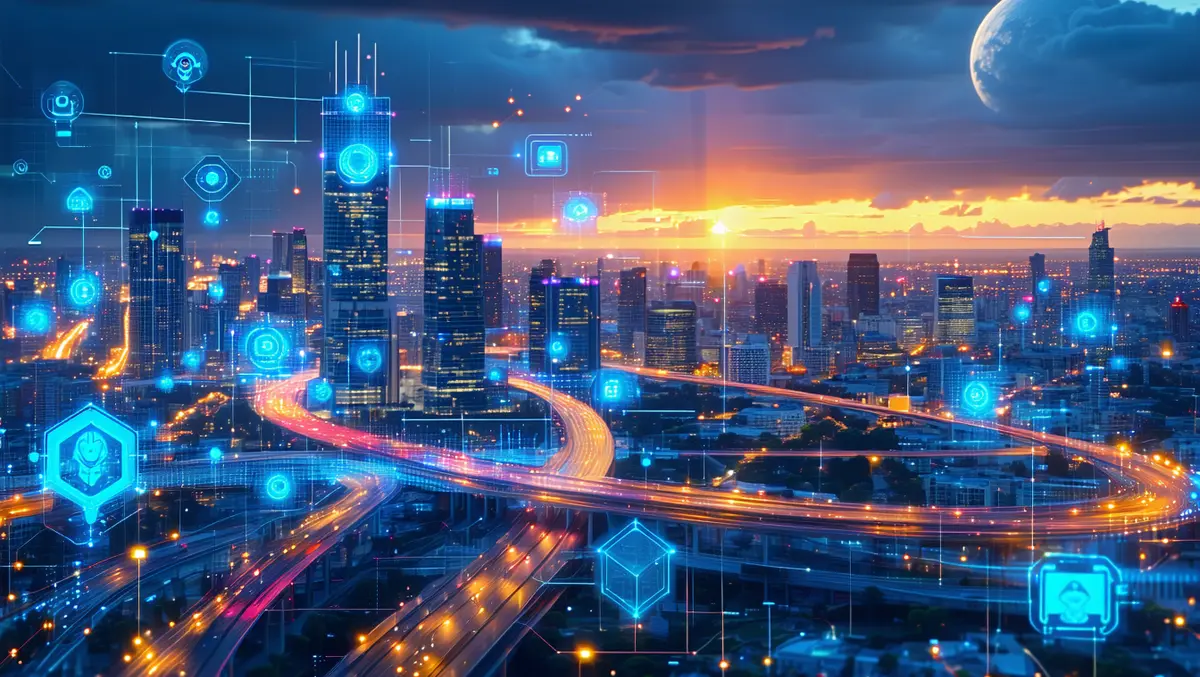A team of AI data experts at Zetaris has made several predictions about the trends expected in 2025, focusing on the widespread adoption of AI technologies in Australia.
Vinay Samuel, Chief Executive Officer and founder of Zetaris, projects that 2025 will be characterised by the "Automation of Everything," as Australia increases its uptake of AI. According to him, businesses will need to completely rethink their models in light of growing geopolitical and economic uncertainty.
Samuel stated, "Given the extreme level of geopolitical and economic uncertainty, Australian businesses operating in the United States and globally in 2025 will redefine business models that are rapid pivot ready. Plan B will be locked and loaded as a secret shadow business model."
He predicts significant changes in the business landscape, highlighting the importance of soft skills such as problem-solving, communication, collaboration, and teamwork, as these will be valued more highly due to increased recognition of the current limitations of AI.
"2025 will be known as the year of 'The Automation of Everything.' Automation of every facet of business will accelerate, and the role of the human in the loop will be further refined," Samuel explained.
With the amplified use of AI, Samuel anticipates that Australian businesses will reevaluate their strategies to leverage AI in new ways, enhancing the speed of AI market opportunities and revenue streams.
"As the use of AI accelerates globally in 2025, Zetaris predicts more Australian organisations will totally rethink their business models and strategic approaches. They will unlock AI capability in new ways and increase the speed of AI market opportunities and revenue streams," he noted.
Furthermore, Zetaris anticipates a shift away from chatbot reliance, with diminishing funding for these projects, as organisations aim to implement AI projects with more mature capabilities.
"Zetaris reports that 2025 will see the demise of reliance on chat-bots and funding for chat-bot projects will diminish. Australian organisations will be shifting quickly from a chat-bot focus to projects that target more mature role-based AI capabilities," Samuel said.
Customer experience is expected to be redefined using AI, necessitating an increase in infrastructure to support AI operations at the edge, crucial for achieving customer experience goals.
"Customer experience and the customer journey throughout the whole touchpoint lifestyle will be redefined using AI as the main interface in 2025 and beyond. AI at the edge will become critical to meeting customer experience goals, which will drive massive infrastructure demand in the form of compute at the point of inference (at the edge)," he elaborated.
The anticipated adoption of lakehouse data technologies in 2025 is expected to advance AI projects, moving towards a decentralised model and introducing the concept of an "atomic lakehouse."
"2025 will see the acceleration data projects leveraging lakehouse technologies to fuel AI's widespread adoption, including at source where the data is created. A shift towards a federated model of data management in 2025 will see the emergence of the 'atomic lakehouse' as the industry shifts further away from the centralised model; towards the notion of many data stores, streams, lakes and databases, and files being coordinated and analysed for AI and other decision support models," he described.
Sustainability initiatives are likely to gain further attention, with businesses aligning strategically to environmental reporting and increasing funding towards sustainable technology architectures.
"In 2025, we will see a continued emphasis as organisations strive to align more strategically to environmental reporting and align brands more strongly with sustainability initiatives. This will include a stronger focus and unlocked funding to turbocharge development of more sustainable technology architectures that reduce the complexity and compute time to extract real-time, rapid and accurate data insights and reduce electricity duplication and waste," Samuel concluded.



